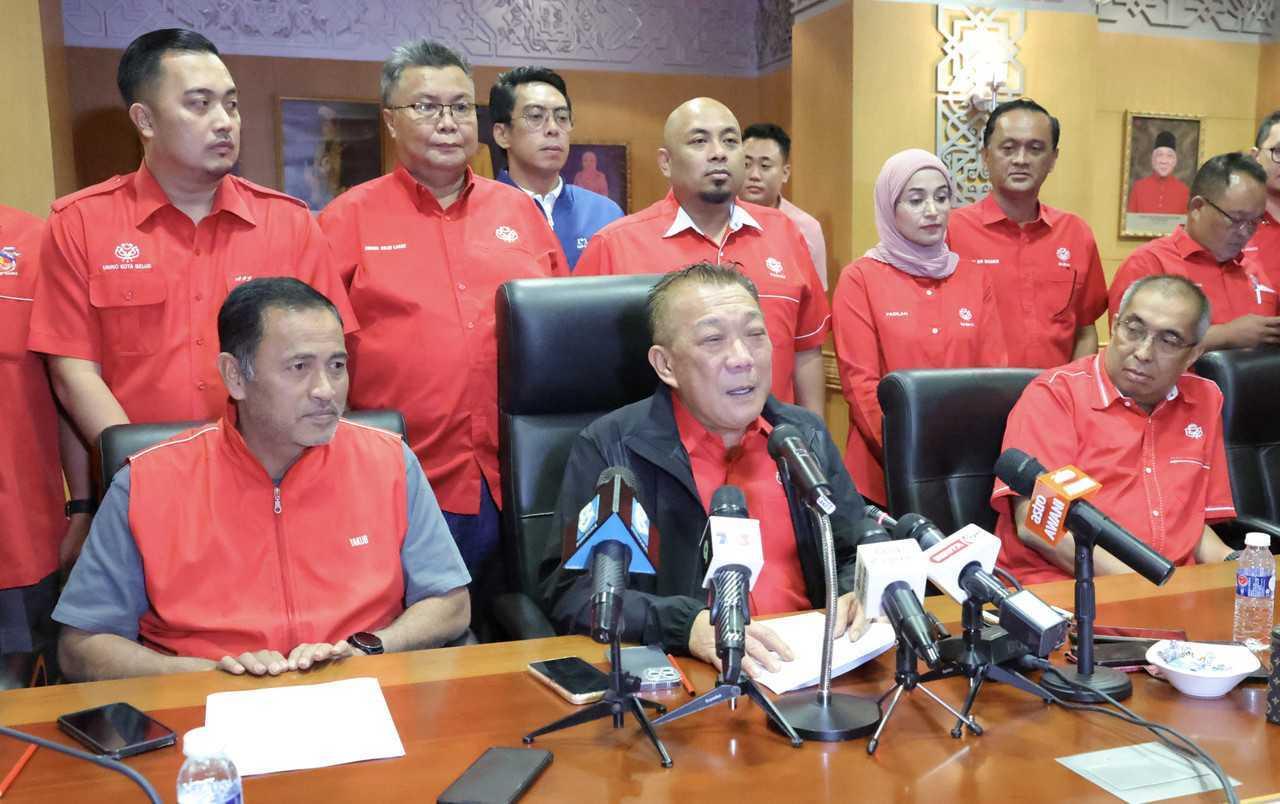Umno out for power, analysts say on Sabah crisis
They say Sabah Umno appears to have made a personal decision instead of acting in public interest.
Just In
While the latest political crisis in Sabah appears to be a local conflict, analysts nonetheless say that Umno's role in the affair demonstrates a continued desire for power by the Malay party.
The upheaval in Sabah was sparked by what has been described as a conspiracy among Umno, Barisan Nasional (BN) and Warisan to topple Chief Minister Hajiji Noor.
Prime Minister Anwar Ibrahim, who was on an official visit to Indonesia at the time, travelled to Sabah to meet with state leaders, as did his deputy, Ahmad Zahid Hamidi.
Anwar later said that they had come only to give advice, and that everything else depended on the Sabah leaders.
Political analyst Mazlan Ali said the crisis appeared to be an internal problem among local leaders in the state.
Nevertheless, he said Umno's actions could be described as distressing.
"Observers and the people alike see Sabah Umno as having made a personal decision instead of acting in public interest," he said.
Mazlan, of Universiti Teknologi Malaysia, added that the conflict could be resolved through the formation of a unity government.
This is Sabah's second political conflict in recent times, following Shafie Apdal's failure to defend his position as chief minister.
Hajiji, who was with Bersatu at the time, was appointed to replace Shafie after the latter's Warisan party was defeated by BN in cooperation with Perikatan Nasional (PN).
The Sabah government had comprised BN, PN and Parti Bersatu Sabah since the state polls in September 2020.
But Sabah BN chief Bung Moktar Radin said on Jan 6 that Sabah Umno and BN were withdrawing their support for Hajiji as they had lost confidence in him as chief minister.
He also referred to a breach in an agreement between BN and PN.
But despite his announcement, five assemblymen from Umno maintained their support for Hajiji, who said on Jan 9 that he had the support of 44 representatives from BN, Pakatan Harapan and his own Gabungan Rakyat Sabah – enough to remain as chief minister.
Bung Moktar meanwhile was sacked from his post as deputy chief minister.
Mazlan said Sabah Umno had a certain autonomy which he described as out of the ordinary.
Mujibu Abd Muis of Universiti Teknologi Mara said the crisis was unlikely to affect Umno as a whole, as it involved parties within a coalition government.
Nevertheless, he said it was possible that the situation would repeat itself at the federal level.
"At the central level, it will depend on how the prime minister deals with intra-party demands, as well as the ability of the parties themselves to handle internal party issues," he said.
"In Sabah, Hajiji could not handle it."
Mazlan, however, disagreed, saying the conflict would not spread to the federal level.
He also said it was important for Sabah to copy Putrajaya's model of coalition government in order to ensure political stability.
Subscribe to our newsletter
To be updated with all the latest news and analyses daily.
